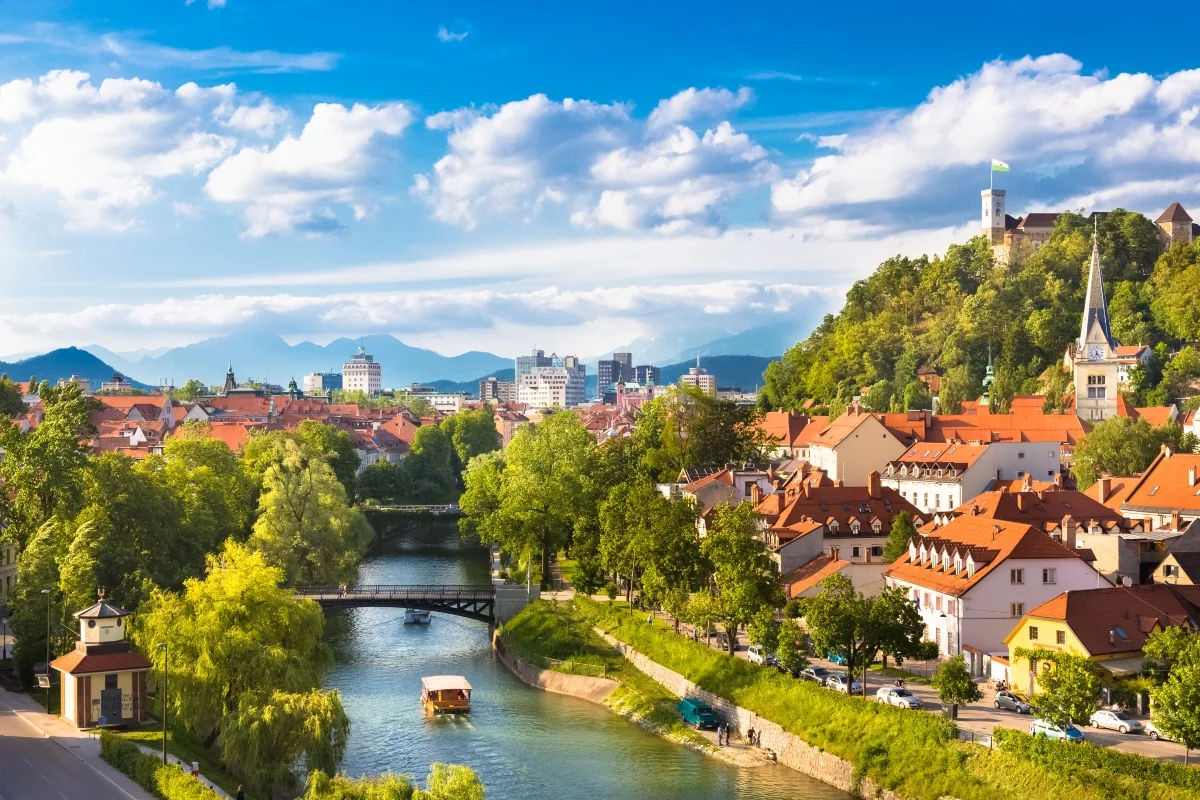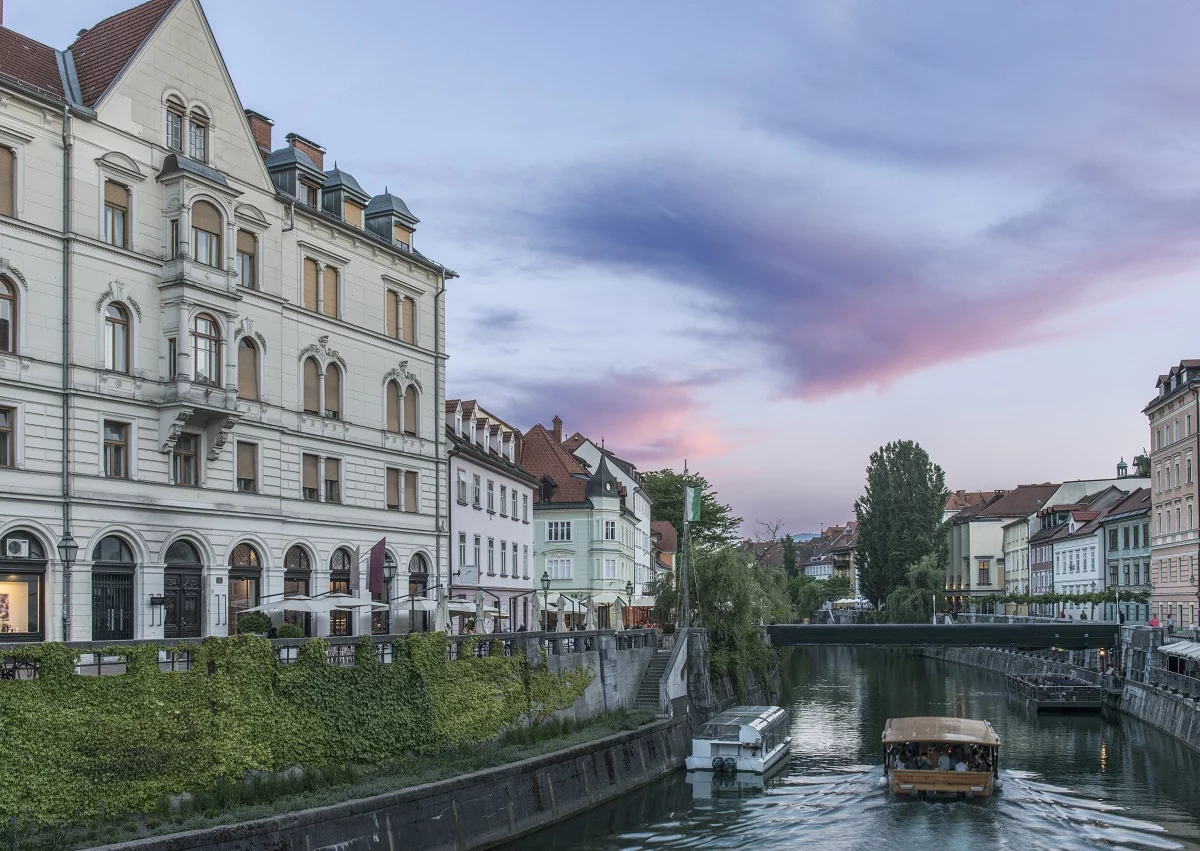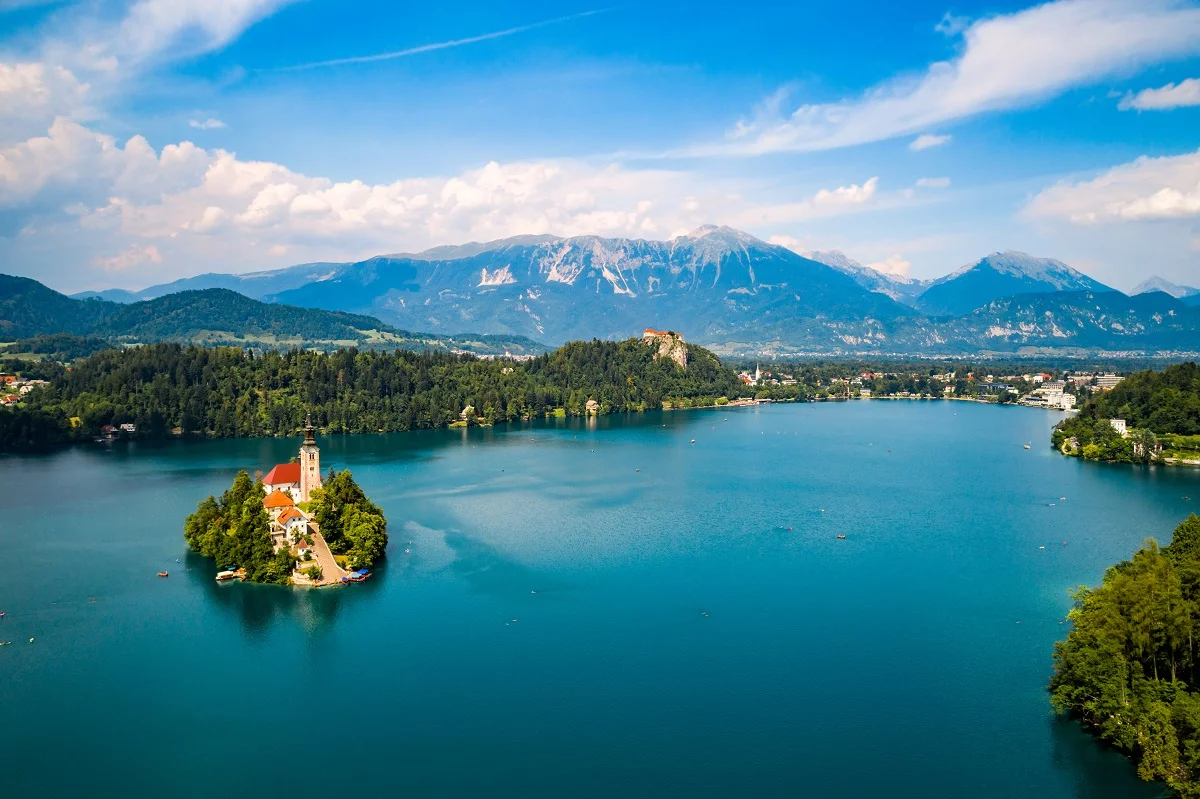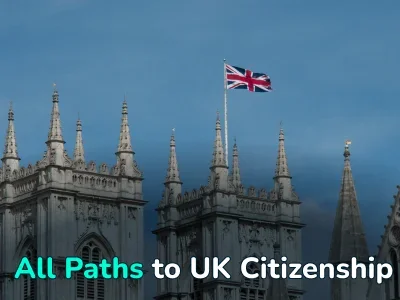
The Director of the real estate agency Galinvest told about all the nuances of moving to Slovenia
Slovenia is one of the most comfortable countries to live in the European Union. There are many natural and cultural treasures on its small territory. The country’s climate attracts thousands of tourists annually: in summer it is hot and you can swim in the Adriatic Sea, and in winter you can snowboard from the snowy Alpine peaks.
The economy of Slovenia is growing rapidly every year. Investment in real estate allows foreigners not only to legally reside in the country, but also to receive a sustainable passive income.
Tatiana Mkrtychyan, director of the Galinvest real estate agency, told us how to buy a property and move to Slovenia.
How to immigrate to Slovenia legally?
The ways of legal immigration to Slovenia are a «standard kit» for the European Union:
- marriage to a Slovenian citizen;
- education;
- employment by invitation;
- business immigration, setting up your own company.
The types of permits to stay in the country depend on the purpose of the visit. Students who come to Slovenia to study are issued a type D visa.
The same document can be obtained by a foreign citizen for high achievements in science, sports, or any other professional activity.
One of the most popular ways of relocation for post-Soviet citizens is business immigration. This option gives the right to live in Slovenia and work for your own company.

Slovenian residence permit
The process and time frames of obtaining a residence permit depend on the basis on which the application is submitted. For example, in order to obtain a residence permit on the basis of business immigration, you must meet one of the following conditions:
- Own a successfully operating company;
- Invest at least 50,000 euros in the country’s economy (including the purchase of real estate);
- Hire a resident of the country for no less than a period of six months and pay taxes;
- Ensure the receipt of funds in the current account with the amount of no less than 10,000 euros monthly (excluding profit).
All the necessary documents are listed on the website of the Slovenian Embassy. They include:
- a questionnaire;
- a photo;
- a copy of international passport;
- fingerprints;
- a receipt for payment of state duty;
- an application indicating the grounds for obtaining a residence permit.
Firstly, the foreigner submits documents to the Embassy of their country and then goes to Slovenia. The time for documents’ processing depends on the workload of the local administrative body — Upravne enote. Thus, in the cities located on the coast of the country, the review period starts from 1-2 months. In Ljubljana, there is a higher workload — the applicant can wait about three months for the documents to be processed. During a pandemic, it may take even longer.
The validity of the residence permit also depends on some factors. Generally, for the first time it is issued only for a year. The second and third — for 2 years. The time frame may be different on an individual basis. For example, if the international passport expires in the near future, the residence permit will be issued only for the period when the passport is valid.
By the way, previously, work and residence permits had to be obtained separately. Now they are registered in a single document. When foreign citizens receive such a card, they must live at least 183 days a year in Slovenia and work in the company stated in the application.
Permanent residence and Slovenian citizenship
Foreign citizens get the right to permanent residence depending on the grounds on which they have received a residence permit. A shortcut is to live at least three years in wedlock with a Slovenian citizen. The most time—consuming way is permanent residence in the country on the grounds of education. 10 years of study will be counted for 5. Those who have immigrated to Slovenia with the help of business can get permanent residence 5 years after the issuance date of the first residence permit.
At the moment, a new draft law on residence permit and permanent residence is being submitted for consideration in Slovenia. This draft provides for new requirements. The law has introduced the Slovenian language examination.
Permanent residence holders have many advantages:
- if a foreign citizen comes with a family, then adult family members are entitled to basic insurance, and minor residents are issued an insurance policy that covers all medical expenses (including medicines, surgery, etc.);
- the applicant’s salary is deducted to the insurance and pension funds, which allows them to qualify for a pension in the country;
- minor children of foreign citizens with permanent residence are entitled to University admission at the expense of the state budget;
- children can study free of charge in all public schools in Slovenian (including those who only have a residence permit).
Citizens of the country are endowed with the same privileges as permanent residence owners, as well as free access to the Slovenian labor market and the opportunity to vote in elections.
Slovenian legislation does not provide for dual citizenship with a large number of countries, so those willing to become residents of the Republic must give up their previous passport.
To obtain a Slovenian passport by business immigration, one has to live in the country for at least 10 years. It should be noted that the availability of a pension does not depend on the legalization documents. You can apply for state assistance only after 15 years of work experience and taxpaying in Slovenia.

Rent and purchase of housing
In Slovenia, any non-resident has the right to rent an apartment, you do not need to have a residence permit or permanent residence. However, it is worth noting that the rent will be determined by a specific period (traditionally 11 months) since foreigners with a type C visa have the right to stay in the country for no more than 180 days. Not all property owners agree to rent their housing on such terms.
Not everyone has the right to buy real estate in the country. Thus, citizens of the former Soviet Union, unlike residents of the EU, can acquire property only as a legal entity. In this case, the buyer needs to set up a company in Slovenia and register the property to the company.
To conduct a real estate transaction, all documents must be provided in Slovenian. If the buyer does not speak the local language, a court interpreter must be present at the transaction. When the notary reads out the sale and purchase contract, the document must be translated simultaneously.
Transaction processing
There are two options of transaction processing:
- a simple written form with partial use of notarial services;
- a fully notarized form of purchase and sale.
Tatiana Mkrtychyan always recommends her customers to choose the second option, because the notary is responsible for the transaction, controls all payments, and double-checks the documentation.
There is no tax on housing purchases in Slovenia, but there are many other transaction expenses. They include:
- court interpreter services;
- realtor assistance;
- notary services;
- printing.
The expenses are usually divided in half between the seller and the buyer. The seller also pays for the attestation of their signature in the contract and 2% of the sale if the object is purchased without VAT. Exceptions are the objects that are sold by banks or at auction. In this case, taxes and state duties are covered by the buyer.
Realtor services are paid for in 99% of cases. If the buyer found the object with the help of the agency that represents the seller, they will still need to pay for the services. In this case, the realtor will work with both parties, but this process is quite complex.
Usually, the buyer hires his realtor to have professional support at all stages of the transaction. According to the law on intermediary activities, the commission from the transaction is 4% + VAT. Most often, the buyer and seller pay 2% each to their agents. If it is a state, bank, or bankruptcy case, the buyer pays all 4% commission.

Real estate investment
In Slovenia there is a tax on land and on the use of land for construction. In 2020, the law on real estate tax was submitted for consideration.
The amount of taxes depends on the purpose and location of the objects. The amounts are quite reasonable and moderate — none of the foreigners have refused to invest for this reason.
It is profitable to acquire property for the purpose of investment in Slovenia. First of all, there is the possibility of making a profit from the lease. Secondly, the property is kept in hard currency — in euros.
Tatiana Mkrtychyan gives such an example: «When a Swiss Bank takes money for the preservation of property, it does not pay anything to the client, but gives guarantees. Romanian banks offer a good percentage, but customers can’t be sure that this bank and the country will exist in a few years. Slovenia is something in between.»
If we talk about passive income, today there are no such high 10-14% per annum as 5-6 years ago. Nevertheless, Slovenia is in the Top 4 countries in terms of the quality of the real estate market.
The Slovenian market has stabilized and reached the pre-crisis prices. Due to the high demand, passive rental income accounts for about 3% per annum. At the same time, it is one of the most low-risk investments, as housing in Slovenia is in demand despite any crisis.
When investing in residential real estate in order to generate income, you should pay attention to the following points:
- Location. The location of the property determines the lease price.
- Year of commissioning. As a rule, in new buildings, the cost of housing is higher, but the income for maintenance is lower. Primary housing is in greater demand than secondary housing.
In Slovenia, there are other profitable forms of investment besides residential real estate. Shopping spaces, service market, tourism, cafes, shops bring in a profit of about 5-6%. Large retail chains (price starting from 2.000.000 euros) — 7%. Office buildings, as the least protected real estate in times of crisis, bring more income to the periphery — 6-8%.
Mortgage in Slovenia
There are no installments for foreigners in Slovenia. You can get a loan, but it will cause a lot of trouble. It is easier to take out a mortgage in your country.
If the buyer does decide to take out a loan for real estate in Slovenia, they must provide the lease agreement and information about the tenant. If the bank has approved the mortgage, the applicant must make the initial payment of 50% of the total amount. The amount of loan payments should not exceed the amount of monthly rent received.
The loan repayment period depends on the term of the lease agreement with a small margin.
You can also get a loan for development projects that do not have a tenant. To estimate the initial payment, bank employees will review the purchased land plot and documentation. As a rule, construction loans are issued on very good terms — the mortgage is paid out from the sale of the project.
The bank will not allow you to drive up prices and wait for too long for the purchase of real estate. Employees will review the business plan and compare housing prices with the real value of the object.
The borrower is also required to:
- Confirm the legality of income. Income coming from your country is not considered as a guarantee. Banks only take into account the income from real estate itself.
- Provide a lease agreement. The authorized bodies will thoroughly review the data about the tenant, the period of the rent, the price, and so on.
Advice for buyers
The main advice that Tatiana gives to her clients is not to rush into making decisions.
After 28 years of working in the real estate industry, Tatiana has become convinced that it’s better not to save on real estate services. It is very important to choose a trustworthy agent. The realtor, in turn, must work in the local real estate market, know the language and mentality of the local people, lobby interests in auctions, and be able to conduct negotiations correctly.
When buying property abroad, Tatiana advises to initially invest in commercial real estate.
When you move abroad, you should keep in mind that not only countries but also cities are very different from each other. The purchase housing can be untimely. There are no rental expenses, but at the same time, there is no passive income.
When investing in commercial real estate, the clients are not tied down to the place. And if they want to move to another city they still have the opportunity to receive passive income.
Another advice is to evaluate the investment amount thoroughly. In addition to all the expenses mentioned above, you will need finances for registration and maintenance of a residence permit, which will cost approximately 1200 euros without taking into account accommodation, everyday life expenses, food, transport, etc.
Фото: Envato

















